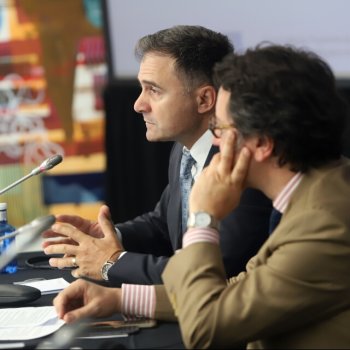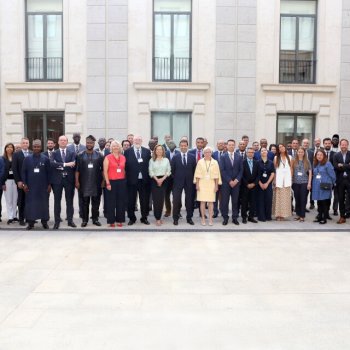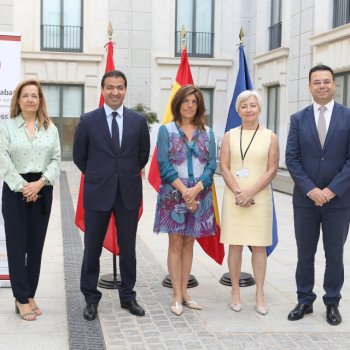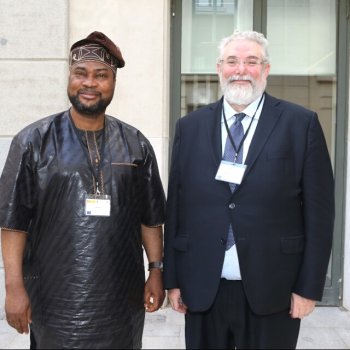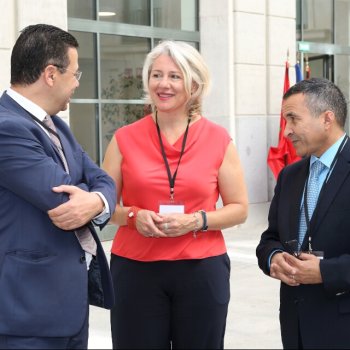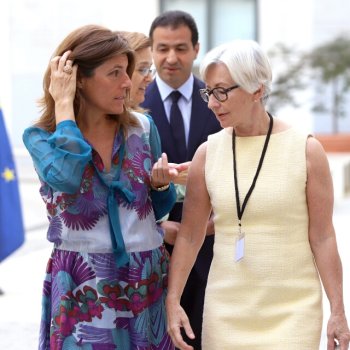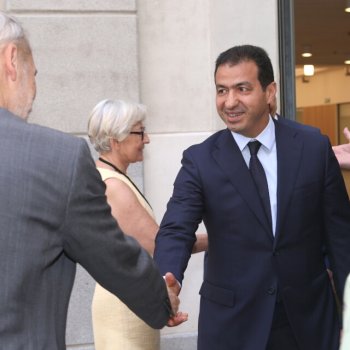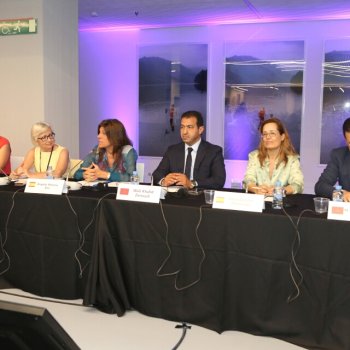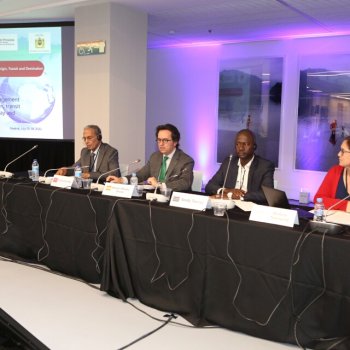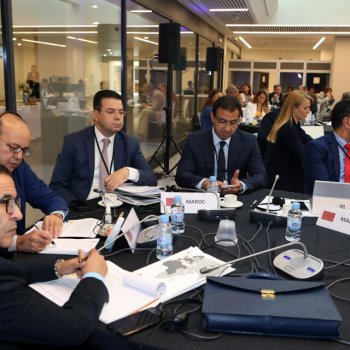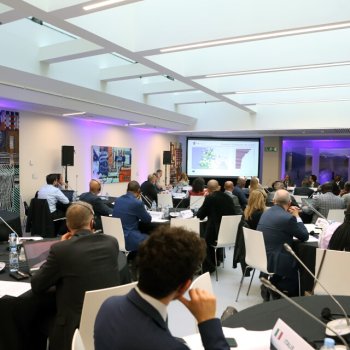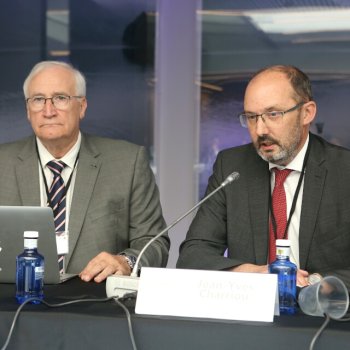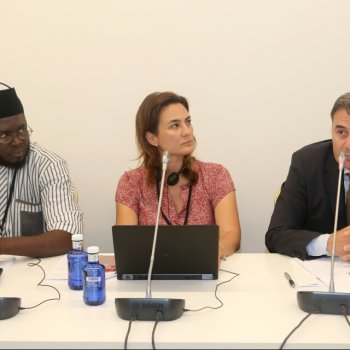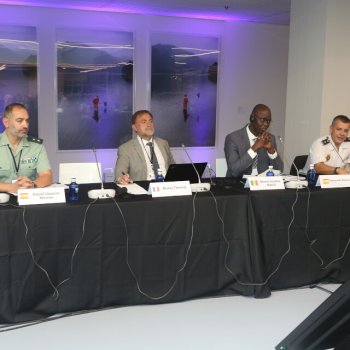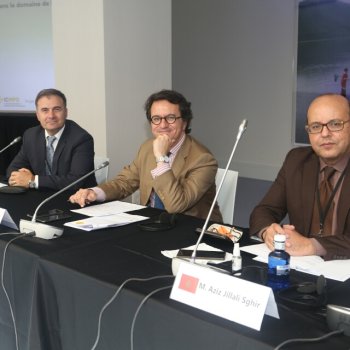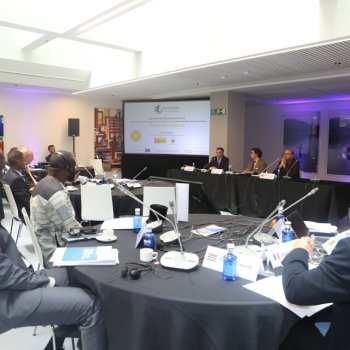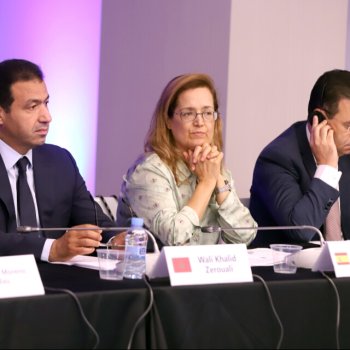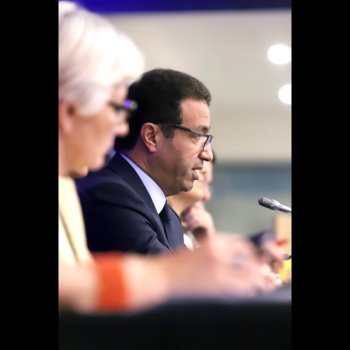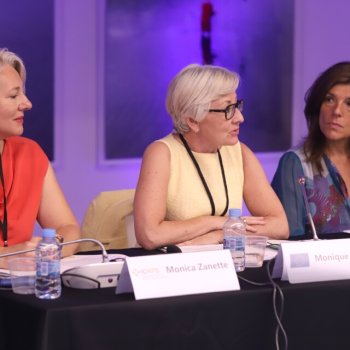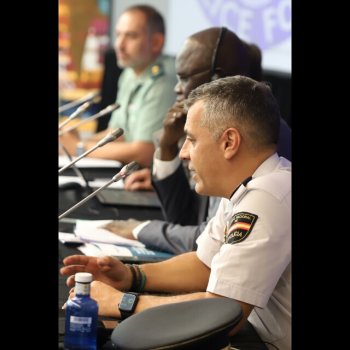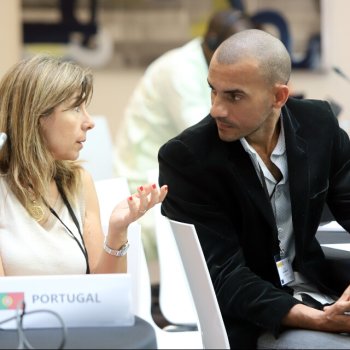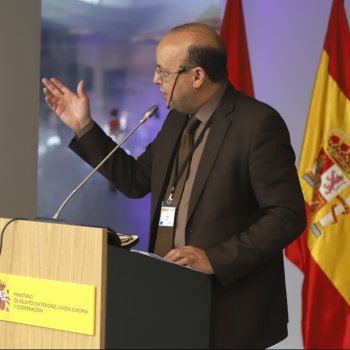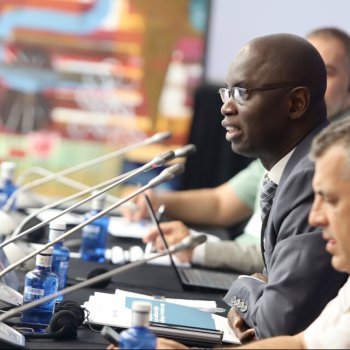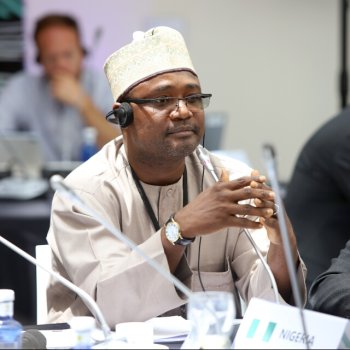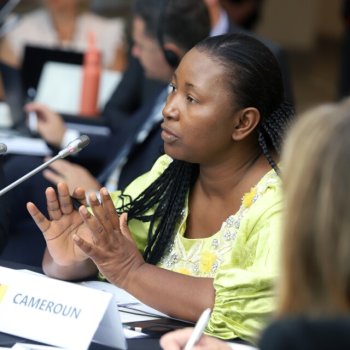On 5th and 6th July 2022, a high-level thematic meeting of the Rabat Process on “Cooperation between countries of origin, transit and destination in the field of border management” took place in Madrid, co-chaired by Spain and Morocco. Representatives of 26 countries and 3 international organisations and agencies gathered in Madrid to discuss the latest developments related to cooperation on border management in the Rabat Process region.

The meeting adopted a practice-oriented approach and focused specifically on challenges, strategies and actions. Participants explored various approaches and good practices which support strengthened cooperation among countries of origin, transit and destination.
Border management is a priority within the current multi-annual strategic framework of the Rabat Process, the Marrakesh Action Plan, which calls to build capacities of public institutions with competency in the areas of integrated border management, migrant smuggling and trafficking in human beings in its objective 7 (Domain 4). The meeting also built on previous work on border management in the framework of the Rabat Process, such as the thematic meeting held 2019 on this topic which also took place in Madrid.
Practice-oriented sessions centred around the topic of cooperation
The two-day meeting started with a high-level opening ceremony and an assessment of the state of play and future challenges related to border management in African countries of origin, transit and destination, before diving deeper into the topic of operational cooperation. Two working groups looked specifically at (1) initiatives to strengthen operational cooperation and (2) the exchange of operational information, which was particularly highlighted as a fundamental axis for successful border management.
The second day began with several concrete examples of countries that apply the principles of integrated border management (IBM), before giving the floor to Senegal and Spain to share their experiences with operational cooperation activities to prevent irregular migration. The afternoon was dedicated to identifying common goals in border management and proposals for next steps.
Conclusions and recommendations
The meeting highlighted a number of successful cooperation initiatives that are already in place in the Rabat Process region, and that it is essential to join forces and work together with the aim of securing borders, through cooperation and coordinated actions not only on security but also on human development aspects. The Rabat Process proved yet again its capacity to create common spaces for understanding, and to build relationships based on trust and the exchange of experiences. The debates around operational cooperation on border management and the insights that were shared during the meeting are reflected in the final report, which also contains forward-looking recommendations.


